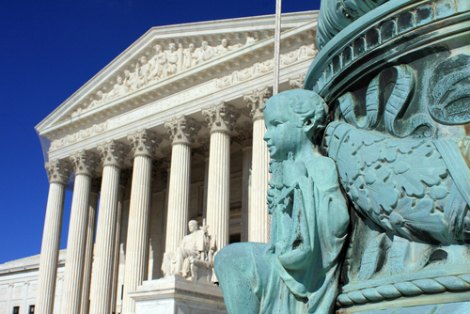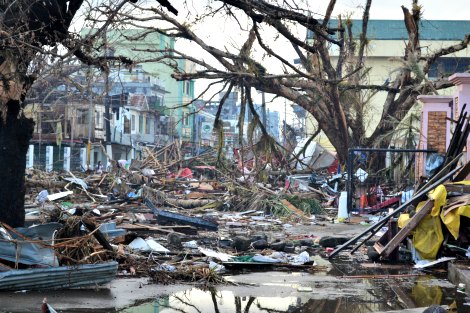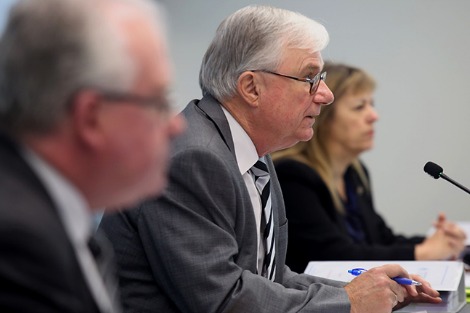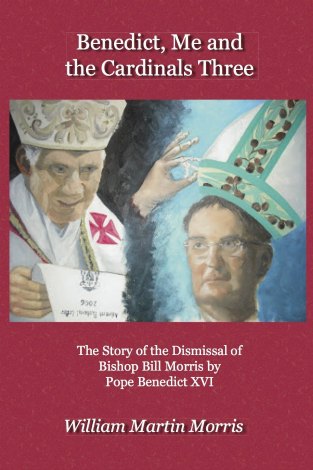Keywords: Australian Catholic Bishops Conference
There are more than 200 results, only the first 200 are displayed here.
-

- Frank Brennan
- 18 September 2015
Pope Francis's concerns are not narrowly dogmatic or pedagogical but universally pastoral. He knows that millions of people, including erstwhile Catholics, are now suspicious of or not helped by notions of tradition, authority, ritual and community when it comes to their own spiritual growth which is now more individual and eclectic. He wants to step beyond the Church's perceived lack of authenticity and its moral focus on individual matters, more often than not, sexual. He thinks the world is in a mess particularly with the state of the planet — climate change, loss of biodiversity and water shortages, but also with the oppression of the poor whose life basics are not assured by the operation of the free market, and with the clutter and violence of lives which are cheated the opportunity for interior peace. He is going to great pains to demystify his office. He wants all people of good will to emulate him and to be both joyful and troubled as they wrestle with the probl
READ MORE
-

- Frank Brennan
- 26 August 2015
7 Comments
When addressing Italian doctors last November, Pope Francis quoted St. Camillus de Lellis who suggested that the most effective method in caring for the sick was simply to 'Put more heart into those hands.' Let's do something to change the market settings and political settings here in Australia to modify the behaviour of all Australians in the future, and let's attend to our own Franciscan interior ecological conversion with our care for the vulnerable.
READ MORE
-

- Frank Brennan
- 06 August 2015
3 Comments
Pope Francis is not the first pope to address a social encyclical to everyone. But in comparison with his predecessors, Francis has been more inclusive in the process of writing the encyclical and in the final content of the document. He quotes from 17 different conferences of Catholic bishops. He is at pains to indicate that he is collaborative and that he takes the principle of subsidiarity very seriously. Being the final redactor of the text, he has felt free to interpolate some very folksy advice from time to time. He has also taken the liberty of inserting some very blunt, evocative images of environmental and economic devastation.
READ MORE
-

EUREKA STREET TV
- Peter Kirkwood
- 08 July 2015
7 Comments
Journalist Michael O'Loughlin is national reporter for Crux, the Boston Globe's regular supplement on Catholic Church issues. His book The Tweetable Pope: A Spiritual Revolution in 140 Characters, to be published in September. In this video interview, he analyses the US Bishops' response to the recent US Supreme Court ruling on same sex marriage.
READ MORE 
-

- Frank Brennan
- 08 July 2015
3 Comments
I suspect Pope Francis had some of our Jesuit alumni in mind when he wrote in his encyclical Laudato Si: 'A politics concerned with immediate results, supported by consumerist sectors of the population, is driven to produce short-term growth... True statecraft is manifest when, in difficult times, we uphold high principles and think of the long-term common good. Political powers do not find it easy to assume this duty'.
READ MORE
-

AUSTRALIA
- Frank Brennan
- 03 July 2015
75 Comments
In its determination that same sex couples have a constitutional right to marry, the US Supreme Court took it upon itself to discover a definitive answer in the silent Constitution on this contested social question. This is regrettable, because there can be no doubt that the democratic process was taking US society in only one direction, and the Court's unilateral intervention has reduced the prospects of community acceptance and community compromise regarding the freedom of religious practice of those who cannot embrace same-sex marriage for religious reasons.
READ MORE 
-

ENVIRONMENT
- Thea Ormerod
- 27 January 2015
33 Comments
It is no coincidence that Pope Francis chose to visit the Philippines before he releases his encyclical on the environment, and that he made a point of visiting Tacloban, which was ground zero for super typhoon Haiyan. This follows the recent UN climate talks in Lima, where Australian negotiators so regularly blocked consensus that they won us the 'colossal fossil' award for 2014 from environmental observers.
READ MORE 
-

EUREKA STREET TV
- Peter Kirkwood
- 01 October 2014
34 Comments
For two weeks from this Sunday, the much anticipated Synod on the Family will take place at the Vatican. Those attending include around 150 bishops, a number of lay experts and 14 married couples. An interested observer from afar is former NSW Labor premier Kristina Keneally, theologically trained and one of the most prominent lay Catholics in Australia.
READ MORE 
-

AUSTRALIA
- Frank Brennan
- 22 September 2014
5 Comments
Considering my indebtedness to the two Aborigines who met [my family's ship arriving in Hervey Bay from Ireland] 151 years ago, I owe it to all my fellow Australians to agitate these issues of law, morality and politics here in Ireland so that back in Australia, the homeland which, in my religious tradition, was known as the Great South Land of the Holy Spirit.
READ MORE
-

AUSTRALIA
- Neil Ormerod
- 18 August 2014
33 Comments
The recent independent redress scheme announcement by the Catholic Church's Truth, Justice and Healing Council is welcome. However it is not simply a matter for church hierarchy. Congregations need to be brought into the process of healing and reparation, which might include liturgies of lamentation and practical ways to make the church a safe place for victims of abuse.
READ MORE 
-

RELIGION
- Frank Brennan
- 23 July 2014
1 Comment
'Rohan provides a detailed and accurate analysis and history of the word games that have gone on between the Vatican and the Latin American bishops and theologians wrestling with the concept of the preferential option for the poor.' Frank Brennan launches The Preferential Option for the Poor: A Short History and a Reading Based on the Thought of Bernard Lonergan, by Rohan Michael Curnow.
READ MORE
-

RELIGION
- Frank Brennan
- 24 June 2014
53 Comments
'My one new insight from reading Bill's book is that he was sacked because he was too much a team player with his local church ... the Romans hoped to shatter the morale and direction of those who had planned the pastoral strategies of a country diocese stretched to the limits as a Eucharistic community soon to be deprived of priests in the Roman mould.' Frank Brennan launches Benedict, Me and the Cardinals Three by Bishop William Morris.
READ MORE